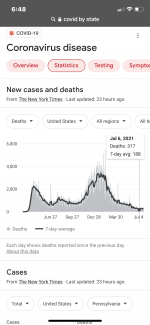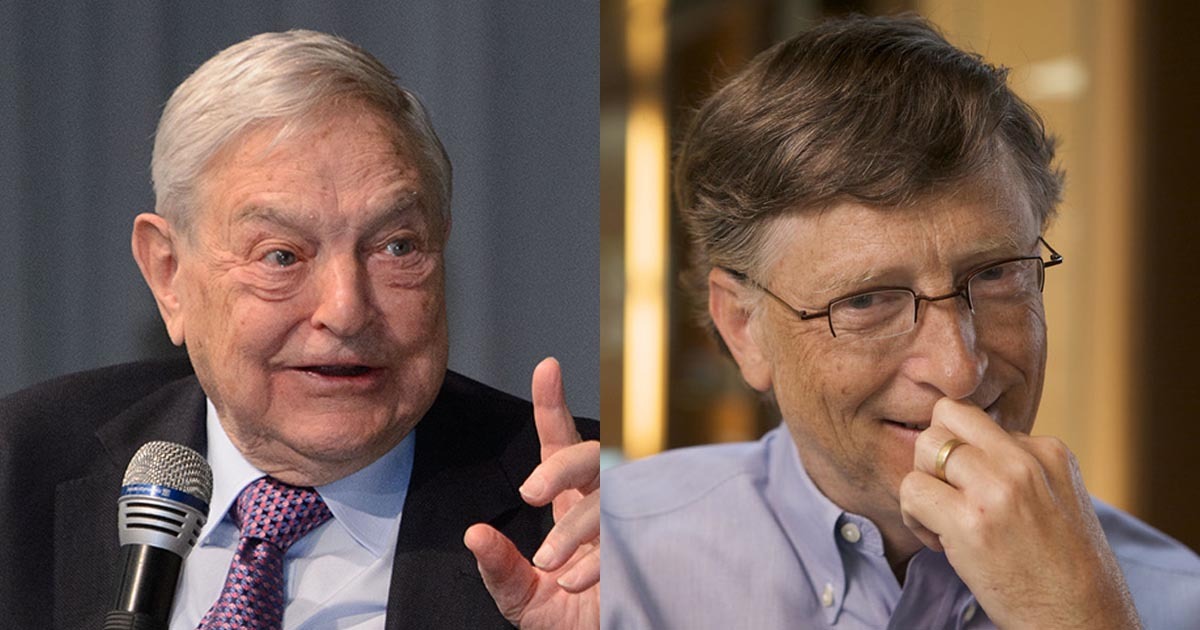I didn’t cherry pick anything. The reason I used July 6th is that it was the lowest 7 day average since early in the pandemic. Again, let’s see what happens in the coming weeks. Are you on record as saying deaths won’t go up? Of course not, right?
And what is your source that there is no need to get the vaccine if you’ve had Covid? Everything I see recommends it…
<p>If you’ve had COVID-19, you’ll still need the vaccine for full protection from the virus. But it’s looking more and…</p>

hartfordhealthcare.org
One, I have said multiple times I don't know where this is going.
Two, have you bothered to wonder why July 6 looked so low? Hmmmm...let me think (as I scratch my chin):
July 1 - 321
July 2 - 330
July 3 - 161
July 4 - 119
July 5 - 125
July 6 - 247
July 2 was the Friday before a long holiday weekend. People were working, tabulating data. Then it was...well...the weekend. Then it was Monday the 5th, a day off for most companies. Then it was the 6th. We all know that deaths reporting isn't accurate and weekends have led to piss poor reporting and dumps of death data on days following weekends and holidays. Notice that the Friday before was 330 deaths...then it drops to the 100s while everyone was off...then on Tuesday the 6th the numbers go back up.
Now average them out. Good Lord, in one post you talk about trends, then you abandon trends when they don't fit your ideology.
There is a difference between a recommendation to get the vax if you'd had COVID v a study that determines how long immunity lasts if you have had the infection. Try figuring out the difference. COUNTLESS articles have been posted here talking about how long natural immunity has been lasting and how long they think it will continue to last.
My son is going to college in a few weeks (a major SEC school). They sent out guidelines for entry into the dorms. Proof of vaccination or proof of COVID infection within the past 90 days.
Thank God some organizations are recognizing natural immunity works.
----------------
Immunological memory
Immunological memory is the technical term for immunity. There are
three types of white blood cells that help our immune systems to protect us: macrophages, B-lymphocytes, and T-lymphocytes.
- Macrophages: These cells will attack and break apart viruses and bacteria when we are sick or shortly after we receive a vaccine. What they leave behind when they’re done are known as antigens.
- B-lymphocytes: These cells, also known as “B cells,” make antibodies to attack the antigens the macrophages left behind. The antibodies are unique for that particular virus or bacteria. If the same infection gets into your body again, your B cells will make these unique antibodies and kill the infection right away.
- T-lymphocytes: These cells — known as “T cells” — are responsible for taking care of cells that have already been infected by the virus or bacteria. They will kill these damaged cells and the infection inside of them. These cells are also responsible for remembering each and every virus and bacteria we come into contact with throughout our lives.
When a healthcare provider does a blood test to measure your “immunity” to a virus, they are usually looking for whether your B cells produce antibodies for that virus. For some infections, they might also look at how many T cells are in your blood.
With
COVID-19 antibody testing, B cell antibodies (called IgG and IgM) are measured. Researchers are trying to find a pattern among people who have recovered from COVID-19. This is so that, in the future, healthcare providers will be able to tell with a simple blood test if you are immune.
Until recently, researchers thought that natural immunity to COVID-19 only lasted for
about 2 to 3 months before fading. There were even
reports of people getting sick twice. But as experts have learned more about COVID-19, they’ve found that immunity lasts much longer than that.
One recent study found that natural immunity is still present in people 8 months after they were infected.
Another study noted that parts of the immune response of people who had COVID-19 are similar to those of people who were sick in the early 2000s with SARS (a virus very similar to the one that causes COVID-19). Because of this, some experts think natural immunity to the coronavirus might last for
several years.

 news.google.com
news.google.com
 news.google.com
news.google.com










